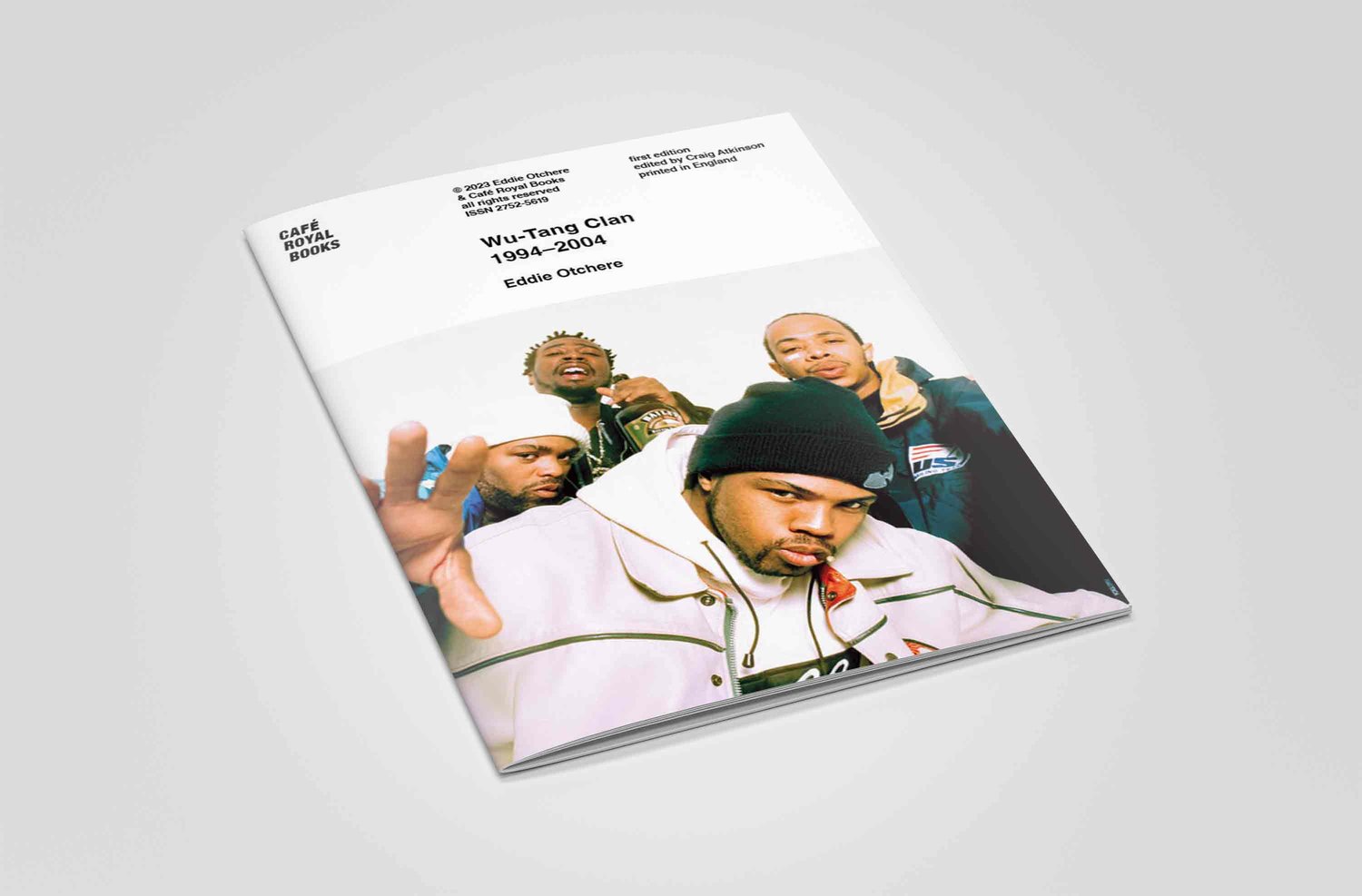All photos © Eddie Otchere
Back in 1994, word on the street was out: Wu-Tang Clan had landed in London for a concert at the Kentish Town Forum. Deeply immersed in the city’s underground music scene, Vauxhall native Eddie Otchere knew his moment had arrived. Then 20, the young photographer made a few calls and learned the Wu was making a stop at the record company before heading over to soundcheck.
Otchere grabbed his camera and made his way to BMG headquarters in Putney. As he made his way over, a wave of loud, raucous voices came rumbling down the street. “I could fucking hear them a mile away,” he says. “As soon as I turned the corner, it was like, ‘Yo, so fucking pleased to see you’re here!’ I was so happy to see them, I just started snapping away because I didn’t know if I would ever see them again.”

With the blessing of Papa Wu, Otchere joined the group on the tour bus to Kentish Town. He immediately noticed the Wu’s choice of music. “They were playing tapes, but they weren’t playing Hip Hop, they were playing deep soul music and really deep blues that were quieter — almost like if they catch you the wrong way you will start crying because they have a raw pain,” he says.
The soundtrack formed a poignant counterpoint to their youthful shenanigans. “They were supposed to be doing soundcheck, but instead they were throwing rocks at passing trains,” Otchere remembers. “They also showed me some tricks: Masta Killa climbed up a wall doing some Spiderman shit. Ghostface saw that and added his own thing. It you look at the contact sheets, there’s some wild shit going on.”

Although it was too dark to shoot the concert, Otchere was on a high. He photographed Method Man looking wild with one eye rolled inside his face, mouth hanging open and tongue popped out. The playful portrait quickly became a defining shot in Othchere’s early career. But he knew he was not done.
“I stalked them. I found them. I photographed them. I got a body of the Wu Tang that was amazing, but they weren’t all there. No RZA, no Ol’ Dirty Bastard,” he says, revealing the start of a 10-year odyssey to collect them all for the new book Wu-Tang Clan 1994–2004 (Cafe Royal Books).

By 1997, the Wu had gone solo and dominated Hip Hop, transforming the music business into fine art. To promote the release of their highly anticipated sophomore album, Wu-Tang Forever, the group returned to London and Otchere got the call: MixMag had hooked up a photo studio session for an official group shot.
Otchere arrived alone, no assistants or entourage; he settled into the studio and popped on a cassette tape: Marvin Gaye’s Here, My Dear. “I must be going through a breakup because, you know… when you’re falling in love you play Marvin Gaye’s I Want You, that’s the album in the background,” he says. “And then as soon as you break up it’s Here, My Dear, a proper divorce album. Thank you, Marvin.”

While the tape was playing, Ol’ Dirty Bastard arrived — but he was in a highly agitated state of distress over phone taps and media leaks. “ODB was clearly going through it. The FBI had been tapping his phone. He wasn’t paranoid; he was made to feel paranoid,” says Otchere, who points to the FBI’s long-time surveillance of the group.
“Over the years, we’ve come to appreciate that news organizations were tapping phones, unlocking messages, and publishing these stories. People were going mad going, not realizing what was happening,” he continues. “ODB he was terrified. He was like, ‘Yo, man, you gotta burn the negatives, you gotta destroy these negatives. I don’t want these negatives out there.'”

After trying to explain he was shooting on transparency film, which only produced positives, and realizing he was getting nowhere, Otchere offered to give him the tape instead. ODB was immediately appeased and peace was restored. But Otchere’s work was not done. He was still missing the Abbot.
Then Bobby Digital turned up. Otchere went over to the hotel to photograph the RZA in the Presidential Suite. The session came together like magic, the portrait was done and the two had forged a bond of truth that would continue long after the shoot.

“In a sense I should have completed the story,” says Otchere. “ODB soon passed away. Then Cappadonna came to England so I shot him in Brixton. It felt like I got this whole thing.” But there’s still more chambers ahead.
In 2012, Otchere was two decades in the game and reflecting on the journey as a photographer. “It’s such a crucial point where you look at your work and start to see connections that only time can tell,” he says. “I wanted to look at myself as a photographer again, get over my mid-career crisis, really understand what my photography was, appreciate the fact that yes, I wasn’t a young man with a camera but I shot on film.”

Recognizing his work with the Wu embedded in the roots of his practice, Otchere made a pilgrimage to the Amalfi Coast, where he printed and hung nine individual portraits of the Wu in a local church honoring the Black Madonna. “The Italian countryside has its own romance and putting the Wu Tang in that was a spiritual awakening,” Otchere remembers.
“It was a wonderful time for me to free my mind. I made it as big as I could in the underground and I was all right with the fact I would never cross over. If it wasn’t for Hip Hop and photography, I wouldn’t have as strong a voice as I do today. That experience put me in alignment with the world.”

You can follow Miss Rosen on Twitter and Instagram.



